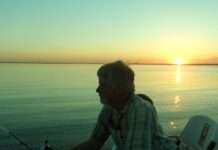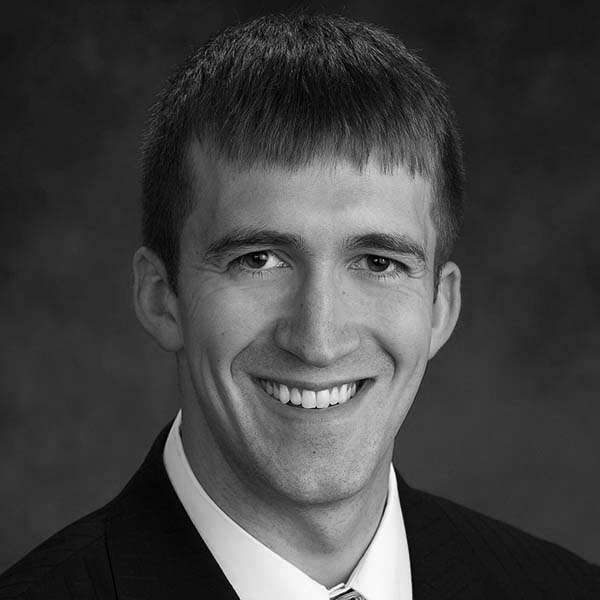By Frank J. Buchman
“The beauty and magic of the partnership between a horse and its rider have been celebrated as a symbol of dynamic unity; and emotional connection that helps heal and energize.”
One can only completely understand and comprehend that statement when seeing the magic truly come to life at Heartland Therapeutic Riding, Inc., 9655 Antioch, Stilwell, Kansas.
“At Heartland Therapeutic Riding (HTR), we know that a vital sense of freedom is experienced when riding a horse,” explained Executive Director Jennifer MaGee, who has witnessed the feeling firsthand.
“Doctors said my son would never walk when he was a baby, but a woman in Dallas, Texas, insisted that with therapeutic riding he would, and he does. My son is 19 now, walks on his own, admittedly at uneven gaits, but he graduated from high school, and is happy, largely in part to horses,” MaGee said.
“So, obviously I am a believer, and the main reason I’m here at HTR helping others find out and experience the beauty that can come from therapeutic riding,” MaGee clarified.
 Founded in 1977, and lead by a volunteer board of directors, Heartland Therapeutic Riding is designed to assist individuals with physical or cognitive disabilities, such as cerebral palsy, spinal bifida, autism, development delay, Down Syndrome emotional disorders, sight and hearing impairments and neuromuscular and orthopedic challenges.
Founded in 1977, and lead by a volunteer board of directors, Heartland Therapeutic Riding is designed to assist individuals with physical or cognitive disabilities, such as cerebral palsy, spinal bifida, autism, development delay, Down Syndrome emotional disorders, sight and hearing impairments and neuromuscular and orthopedic challenges.
“The horse’s rhythmic movement and the rider’s response to the gait combine to form a symbiotic partnership that creates a powerful opportunity to increase potential for personal fulfillment,” MaGee detailed.
“Because the horses are in sync with a rider’s slightest movement and respond accordingly, the horses foster an incomparable level of teamwork and a sense of accomplishment with their human charges,” described MaGee.
HTR was initiated when horseback riding as therapy was suggested to Jean Baum after doctors insisted that her then nine-month-old daughter might not walk. Baum investigated the Cheff Center for therapeutic riding in Minnesota, and was convinced that the Kansas City area needed a therapeutic riding program.
But, nobody was willing to take on the project. “They were unnerved by the prospect of having children with disabilities on their property, much less riding horses,” MaGee noted.
However, in 1981, Heartland Therapeutic Riding purchased about 27 acres of land at 133rd and Antioch, where the program grew with Baum’s initial leadership, then that of Patti Kortkamp, along with Sandy Rose and Joni Roeseler, volunteer coordinators, who are currently serving on Heartland’s Board of Directors.
. In the mid-1990s, real estate developers became interested in Heartland’s property on Antioch. “Eventually, the bids became so high that the Board determined they should sell the property and move farther south. The sale enabled Heartland to buy 78 acres of land at 19655 Antioch Road, and construct the facility designed specifically for therapeutic riding, and it was formally dedicated in 1998,” MaGee said.
Heartland is now recognized as a Professional Association of Therapeutic Horsemanship (PATH) Premiere Accredited Center for therapeutic riding, one of the first of now more than 800 accredited therapeutic riding centers across the United States.
“We have 86 riders, and about 130 volunteer assist our staff each week Heartland Therapeutic Riding is in session,” MaGee said. Classes are not conducted during the cold of winter and heat of summer.
“Horseback riding has been proven as one of the few sports that fully utilizes the body’s entire muscle system and helps strengthen muscles, which frequently results in improved balance and coordination,” MaGee continued.
Classes are designed to assist the rider in developing essential cognitive, behavioral, psychological and physical skills needed to achieve successful, adaptive riding.
It is actually a two part program. Early intervention hippo (the Greek word for horse) therapy is provided for special needs children by a physical or an occupational therapist. Therapeutic sports riding is available for children and adults with disabilities.
“Both programs utilize motor planning, cognitive planning, and sensory integration in the design and implementation of each class session,” MaGee said.
A physical, occupational, or speech-language therapist conducts early intervention using a horse as a treatment modality. “The horse provides 3-D movement which stimulates many different systems at the same time, while the therapist applies their skills to address impairments in young children with a wide variety of diagnoses,” MaGee said.
“Hippotherapy is a different kind of therapy as an addition or stand-alone treatment,” she pointed out. This is a 30-minute session once a week mornings and early afternoon for children from two-years to teenagers, with therapists certified in physical or occupational therapy
“Each individual is evaluated before being accepted into Heartland’s programs, and are accepted with their doctor’s written permission. Final determination of eligibility is made by the Heartland staff,” MaGee noted.
There is no discrimination as to sex, creed, color, or ability to pay, but Heartland has a limited amount of scholarship funding for clients unable to pay the full fee, according to MaGee.
“The action of the horse’s back simulates the action of walking in the rider’s pelvis. Horseback riding uses all of the muscles in the body,” she continued.
An occupational therapist and a physical therapist conduct the intervention therapy program, and certified therapeutic riding instructors conduct the sports riding program.
As important as qualified, dedicated staff, and the generous 130 volunteers assisting with Heartland’s service, are the 17 well-trained, sound and patient horses with extensive riding or show experience.
“We couldn’t do any of this without our horses. Regardless of age or gender, extreme joy is apparent on our riders’ faces when they’re riding one of HTR’s gentle and patient horses and building a life-changing relationship with these compassionate creatures,” MaGee credited.
“These are all very special animals, and in reality they have a very easy life here,” she stated.
“The horses must be safe for everybody and adjust to every environment, and every type of rider. They have to be calm, very friendly, not scared of toys, screams, or anything,” MaGee said.
Many of the horses have been donated outright to HTR, and others are leased to the program until they no longer used in the program and are returned to their owners.
“Before a horse comes to Heartland, our equine manager and other staff will come out to try the horses to make sure it meets all of our stringent requirements,” MaGee said.
“Volunteers are a critical element to the success of our therapeutic and sports riding programs. Our volunteers range from high school and college students, to working professionals, and retired individuals,” MaGee said.
“Volunteers take on roles as leaders, side walkers and barn assistants who groom horses and help tack them for classes,” MaGee said.
Volunteer training sessions are offered on an on-going basis as needs arise.
“Cerebral palsy has always made moving a challenge. I’ve never walked as far or as fast as everyone else. But, once a week I get to have the blessed experience of feeling the wind in my hair and seeing the blurred objects as I trot by. I’ve been coming to Heartland since I was three, and in the last 12 years I’ve had some of my greatest experiences at Heartland,” declared one teenage rider, living proof of what occurs at HTR.
“Riding itself is extremely beneficial, but the volunteers make the experience even more so. The relationships established with the volunteers have a very calming effect on me personally. This is the only activity for which all I have to do is show up. As a parent of a disabled child, that’s a ‘biggie’ for me,” said an adult rider, with a child also enrolled at Heartland.
“Hippotherapy and therapeutic riding have been great for my grandson. He’s been involved with Heartland for five years. Riding has strengthened his core area and balance. His swim instructor commented on his ability to surface dive to the bottom of the pool that we didn’t have the previous year,” one Grandmother contended.
Youngest rider is three-years-old, and mature riders retirement age suffering from muscular dystrophy to strokes are among the riders served by a staff of only three full time HTR employees. In addition, there are part time staff including professional therapists and riding instructors.
“Safety is paramount at Heartland,” MaGee re-stated. “Even with the right horses, it requires special mounting equipment, leaders, and one or two side walkers.
“The hardest part of my job at Heartland is explaining to parents that there are more than 50 on a waiting list of riders who want to participate in our program, but it’s impossible to accommodate them. We would love to grow the program, but logistics of time, facilities, volunteers and staff will just not permit it,” MaGee said.
HTR operates on an annual budget of $350,000. No student is denied access to the programs, and 100 percent of students receive financial aid.
“About 70 percent of our operating budget comes from a fundraiser each spring, and the rest comes from rider fees, grants and donations,” MaGee said.
“The rich and abundant rewards the students receive as a result of others’ generosity are priceless. Our ability to continue providing those life-transforming experiences relies on tax-exempt donations,” MaGee said.
Donations in kind are important as well. Among items desired by the facility presently are a four-wheeler, tools, feed, lumber and much more.
“We encourage everyone to call us at Heartland Therapeutic Riding for a personal tour of our 78-acre facility, including indoor and outdoor arenas, trails, pastures, our horses, or to observe one of our classes. We know our students are changed by their experience; we think you’ll be profoundly impacted, too,” MaGee invited.
“The vision to see…the faith to believe… the courage to do,” the working motto that comes to life at Heartland Therapeutic Riding, Inc., 19655 Antioch, Stilwell, Kansas, 66085, 913-8973939, info@htrmail.org.





